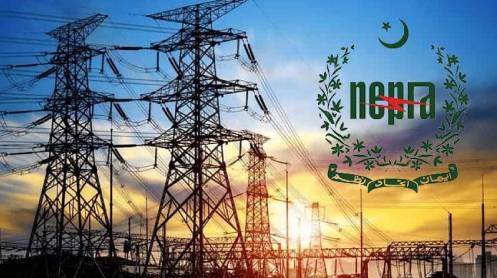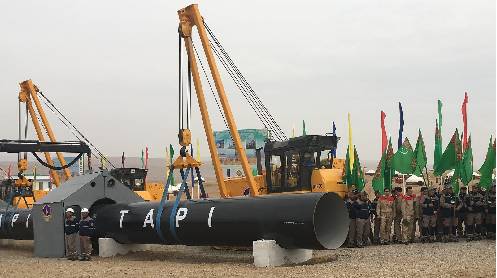The stalemate between the central government and the High Court of Pakistan isn’t slipping through the cracks in global circles and its timing could never have been more terrible. Relatively few have understood the reasonable outcomes of its effect on our moneylenders, financial backers, organizations and economy.
To the extent that country’s unfamiliar loan specialists and financial backers are concerned, the country has for quite a while been experiencing a trust shortfall and believability of its administration frameworks and cycles. Developing unsteadiness in the nation has additionally added to that.
At a new face to face and online discussion named ‘Pakistan: Is there a way forward?’ at Princeton College, USA, Dr Reza Baqir, a previous legislative head of the State Bank of Pakistan (SBP), communicated his anxiety about the IMF’s battle to trust Pakistan’s chiefs. He said, “Anything that has been expressed (dedicated with the IMF) has not been conveyed,” featuring the requirement for dependable accomplices to execute vital monetary changes.
The Worldwide Financial Asset (IMF) is confronting a difficult inquiry in regards to whom to confide in Pakistan to restore its $7 billion credit program for the country. Probably, for a similar explanation, Saudi Arabia and Dubai are finding it hard to commit $ 2 billion and $ 1 billion, separately, for Pakistan to meet IMF conditions.
Atif Mian, a financial expert and creator of ‘Place of Obligation’, has said that the public authority has lost believability because of unfortunate choices taken by various foundations. Pakistan is confronting an insight that it is presently not a positive spot to go, as proven by the big number of individuals looking for visas to leave the country.
Mian highlighted the requirement for esteeming individuals who are placing Pakistan in the correct heading. He additionally underscored the requirement for giving admiration to objective authorities.
The homegrown circumstance is no greater. While preparation the Public Gathering council, Secretary Oil is accounted for to have expressed last week that main three unfamiliar organizations are as of now working in the oil and gas area in the country, as worldwide organizations are leaving Pakistan and selling their resources. Because of nonstop consumption of gas repositories, establishment of new gas associations wouldn’t be imaginable.
The Secretary is additionally answered to have expressed that Pakistan is viewed as a high gamble country for financial backers, and there is dread of default which is beating unfamiliar interest in the nation down. A horribly dubious political circumstance and irregularities in strategies are significant obstacles to endeavors pointed toward getting worldwide organizations for speculation the country, he added.
The other main point of contention of concern is the huge fall in income which won’t be ignored by the banks. This isn’t is to be expected as the execution of IMF states of extraordinary expansion in power levies and oil costs, high loaning rates and loss of rupee esteem against dollar, implied a chilling of financial development with trades, huge scope fabricating (LSM), SMEs and organizations measured down, bringing about cuts being developed and non-improvement uses, and new difficulties to government’s capacity to resign mounting obligation. These are fundamental hard realities, in a manner of speaking. We as a whole realize that a ‘fundamental truth’ in math is characterized as any numerical number, reality or thought quickly reviewed without falling back on systems.
Incidentally, the monetary group of the occupant government is centered around the single track of getting a tranche from the IMF and reinforcement credits from different moneylenders to conquer the compromising test of exhausting unfamiliar trade holds. Other similarly major problems are, consequently, set aside for later.
The essential decide of business is that when the incomes are down then cost slices become unavoidable to accomplish a sound main concern. The public authority doesn’t seem delicate to this essential rule of business. It proceeds to give out great cash to help the non-performing public area endeavors, favor monetary designing to contain the steadily rising round obligation as opposed to dealing with the underlying driver of roundabout obligation covered in defilement, ineptitude and political practicality. There are numerous comparative instances of cash wastage.
In any case, not all partners are unmindful of the financial and political emergency preparing in Pakistan. The loan specialists, as head partners, are most worried about the circumstance.
The World Bank in its report portrays the ascent in Pakistan’s monetary shortfall and obligation as “hazardous” for its economy and has chipped in a few ideas to the country to counter the issues, beginning with a finish to sponsorships, which likewise is the non-debatable interest of the IMF. The World Bank has prescribed various choices to reduce down expenses to some degree decrease the effect of income misfortune; a portion of the key ones are postponed as follows:
(1) Rs 2.72 trillion could be saved through obligation the executives and laying out a solitary depository account and by killing pointless costs and sponsorships as they suck out around 70% of the public spending plan.
Aside from expanding income, reserve funds comparable to 4 percent of the Gross domestic product were conceivable through these authoritative measures.
(2) Rs 315 billion could be saved by restricting the advancement spending plan.
(3) Rs217 billion could be saved assuming the regions covered 90% of the BISP (Benazir Pay Backing System) cost. It was proposed to depend different issues, including 90% of the BISP costs to the regions.
The expense income portion of the national government was just 46% while the consumption remained at 67%.
(4) Rs 328 billion could be saved by the central government on wellbeing and training by completely regressing these subjects to territories as they were commonplace matters.
The World Bank in its report has kept up with that consumptions and shortages expanded after the entry of the eighteenth Established Correction.





